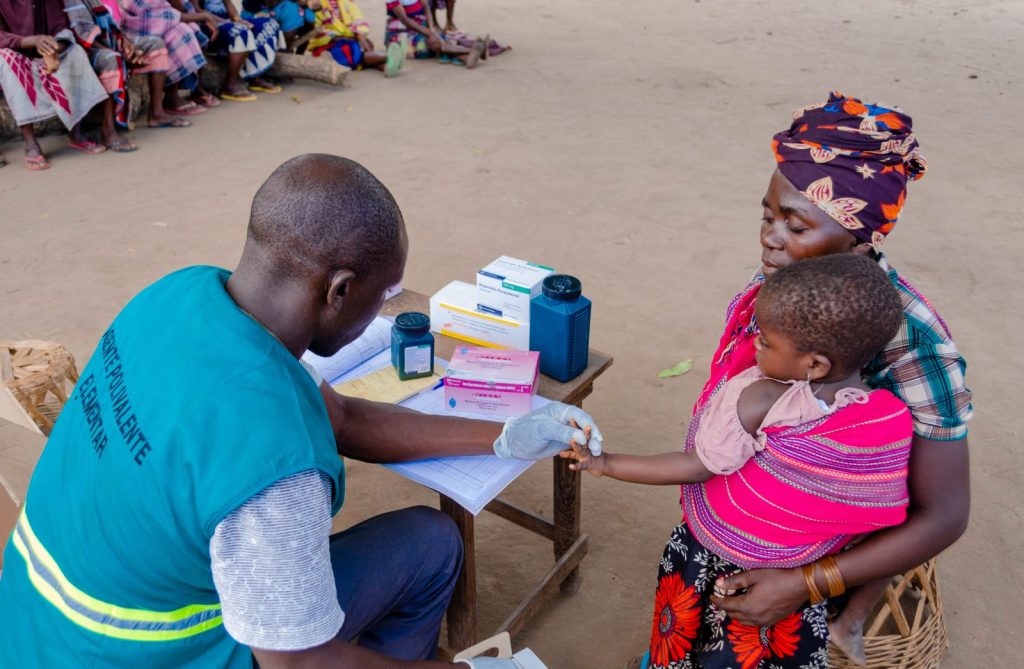In northern Mozambique MENTOR is supporting a network of 305 community health workers, or Agentes Polivalentes de Saúde (APS), to provide essential and continuous health services to people affected by conflict and violence in the region.
In Cabo Delgado Province, more than 800,000 people are estimated to have been internally displaced due to armed conflict and insecurity since 2017. Most people live in resettlement camps and host villages that are difficult to reach and have limited access to quality healthcare. Internally Displaced Persons (IDPs) face a high risk of communicable and vector-borne diseases such as malaria, dengue and chikungunya, as well as diarrhoeal diseases.
APS are recruited from within their own communities and focus on the diagnosis and treatment of malaria, diarrhoea and respiratory infections, the three deadliest diseases in these communities. They are the first defence against malaria, the main cause of death in children under 5 years. They can carry out rapid diagnostic tests (RTD) and treat patients with antimalarial drugs if the test is positive. Severe cases are referred to the nearest health facility for further treatment.
APS in Cabo Delgado diagnose and treat on average 19,200 patients for malaria every month. By providing early testing and treatment for non-severe malaria, APS prevent avoidable deaths as the disease can progress to severe illness and death within 24 hours if left untreated, particularly in children under 5 years. APS also alleviate further stress on the over-burdened health facilities by treating people at the community level.
In 2023:
- MENTOR supported the Cabo Delgado Provincial Health Directorate in the training and on-the-job supervision of 305 APS in 14 districts.
- 382,000 consultations were carried out by APS.
- 196,356 rapid diagnostic tests (RDT) were made, of which 78,714 took place with children under 5 years.
- 115,102 cases tested positive for malaria (58%) from all the RDTs conducted.
Watch a short film about this remarkable team of community health workers who are helping to save thousands of lives: https://youtu.be/hhi2olIr5Ns?si=FN0aRso6LIpLgGtc
This emergency health programme is supported by USAID’s Bureau for Humanitarian Assistance (BHA).
Disease burden in Mozambique
According to the 2023 World malaria report, there were 249 million cases of malaria in 2022 compared to 244 million cases in 2021. The estimated number of malaria deaths stood at 608 000 in 2022 compared to 610 000 in 2021.
The WHO African Region continues to carry a disproportionately high share of the global malaria burden. In 2022 the region was home to about 94% of all malaria cases and 95% of deaths. Children under 5 years accounted for about 78% of all malaria deaths in the Region. Four African countries accounted for just over half of all malaria deaths worldwide: Nigeria (26.8%), the Democratic Republic of the Congo (12.3%), Uganda (5.1%) and Mozambique (4.2%).

